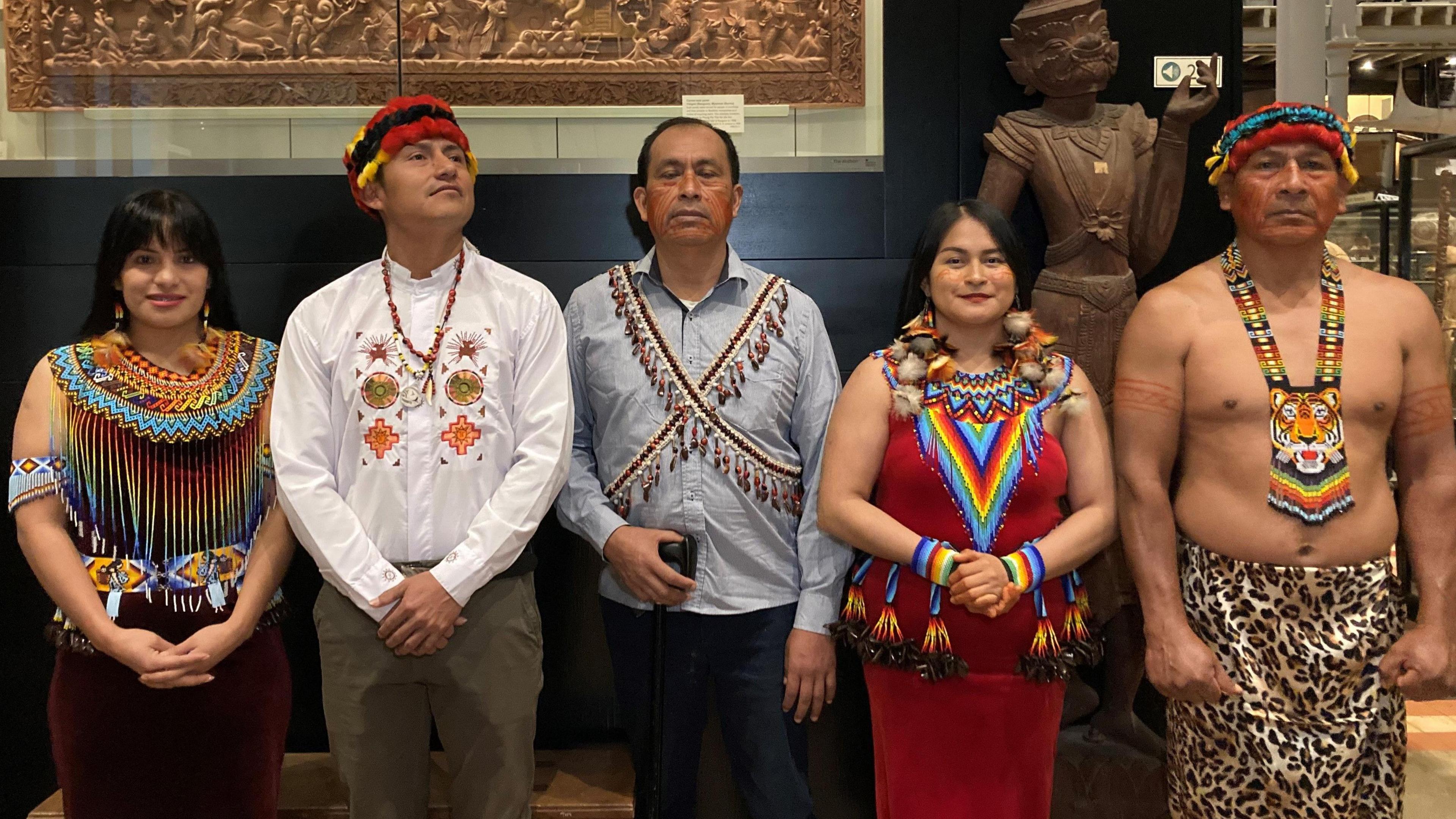Glasgow university returns human remains to South Africa
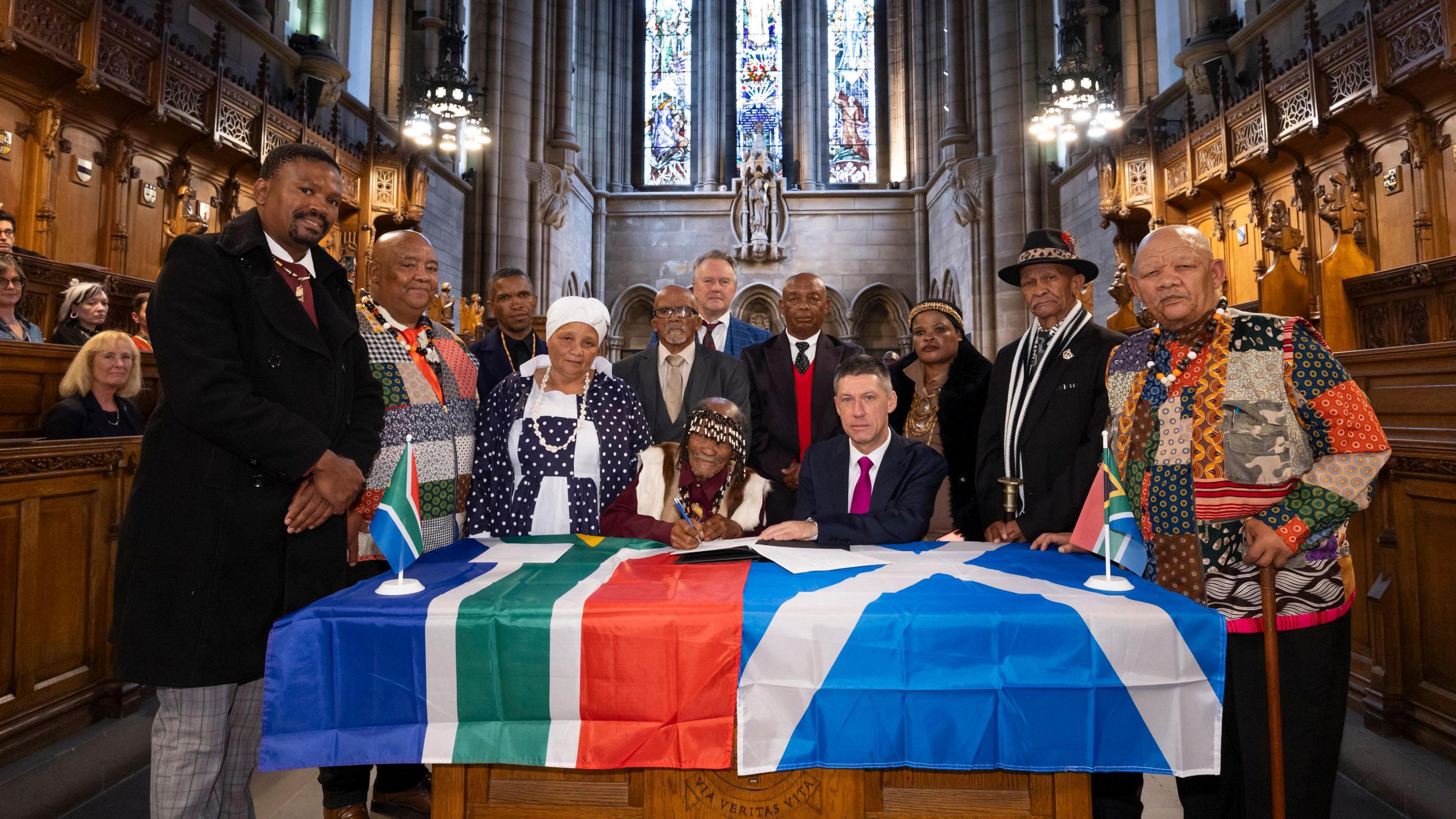
A special repatriation ceremony was held on Monday at the University of Glasgow's memorial chapel
- Published
Human remains taken from South Africa by explorers in the 19th century and left with the University of Glasgow are to be returned.
The university's Hunterian museum held partial remains of six individuals, two plaster face-casts and a soapstone smoking pipe excavated from a burial cairn.
The remains were unethically exhumed in the Northern Cape and Western Cape between 1868 and 1924 and left to the university by various donors.
A special repatriation ceremony was held at the university's memorial chapel, before the collection is taken back to South Africa next week.
A delegation from the Northern Cape Reburial Team, Iziko Museums of South Africa, the South African Heritage Resources Agency and the Department of Sports, Art and Culture (National and the Northern Cape Province) attended the ceremony,
Five of the individuals, and the smoking-pipe, originate from the Northern Cape and are claimed by descendant members of the San, Nama, Griqua and Korana populations.
The other remains originate from the Western Cape and are of Khoi San origin.
These were taken from a cave and are estimated to be considerably older than the others.
The origin of the two face casts is unknown, but they are thought to have been purchased in Edinburgh.
Once returned to South Africa, they will be transferred into the care of Iziko Museums of South Africa for reburial.
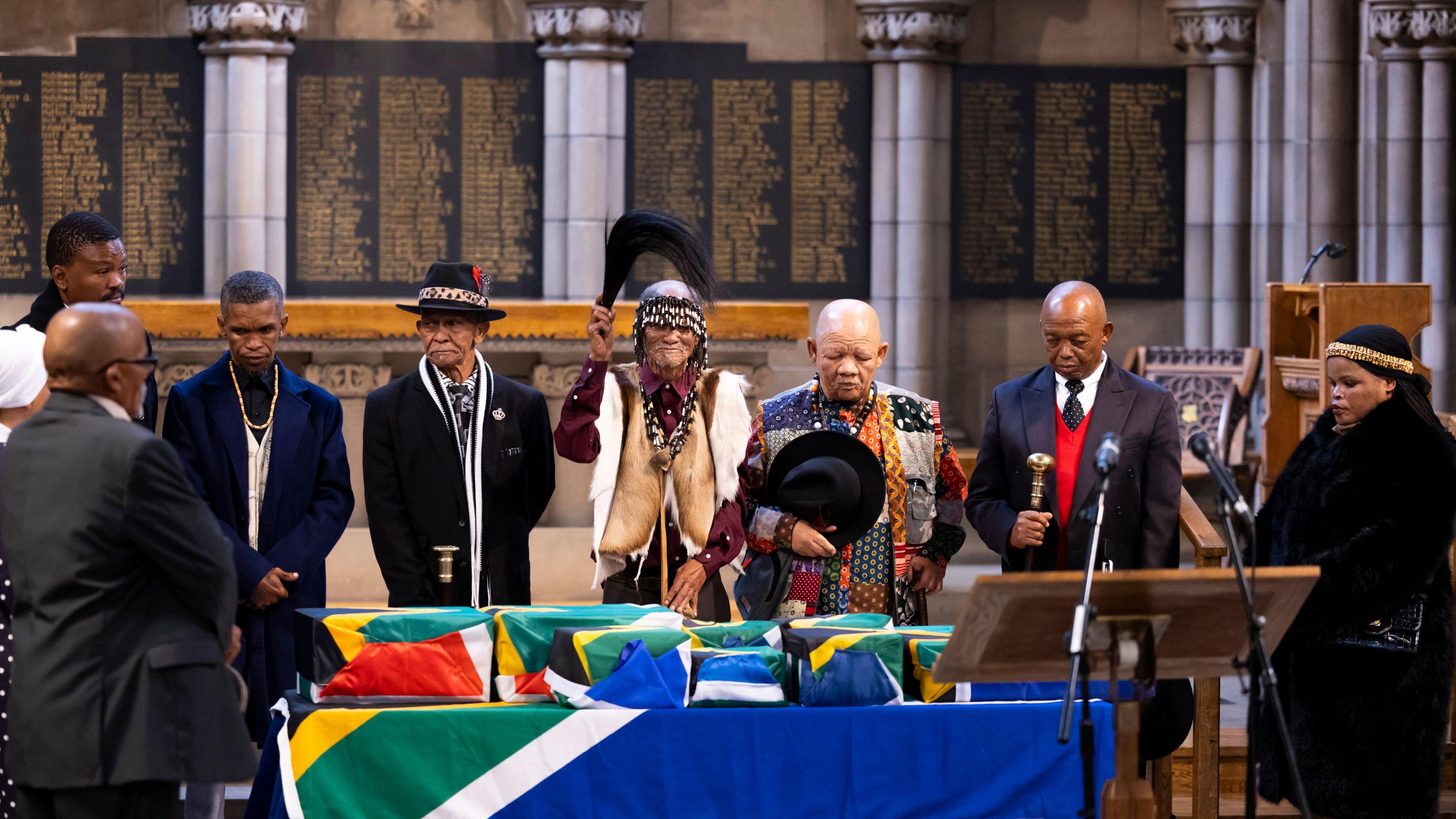
Members of the Khoi-San communities in South Africa attended the service
South Africa's minister of sport, arts and culture Gayton McKenzie, said the repatriation would serve as "an act of remembrance and respect".
He said: "Today, we stand at a solemn crossroads of memory and justice—a moment to honour those whose stories were silenced by history, and to return them home with dignity. This reburial represents more than a physical return.
"It is an act of remembrance and respect, acknowledging the profound trauma caused and taking a step toward restoring the dignity of a people and providing respect for the dead that has been long-standing demand in the struggle for justice."
Professor Steph Scholten, director of the Hunterian, said the return of the remains would help address historical injustices.
He stated: "The repatriation of the ancestral remains of six individuals from the Hunterian to South Africa is a small step towards addressing the historical injustices caused by unethical colonial-era practices.
"I am glad that we can continue to honour our commitment to work with affected communities in an equitable way, returning human remains and culturally significant items to their rightful communities with dignity and care."
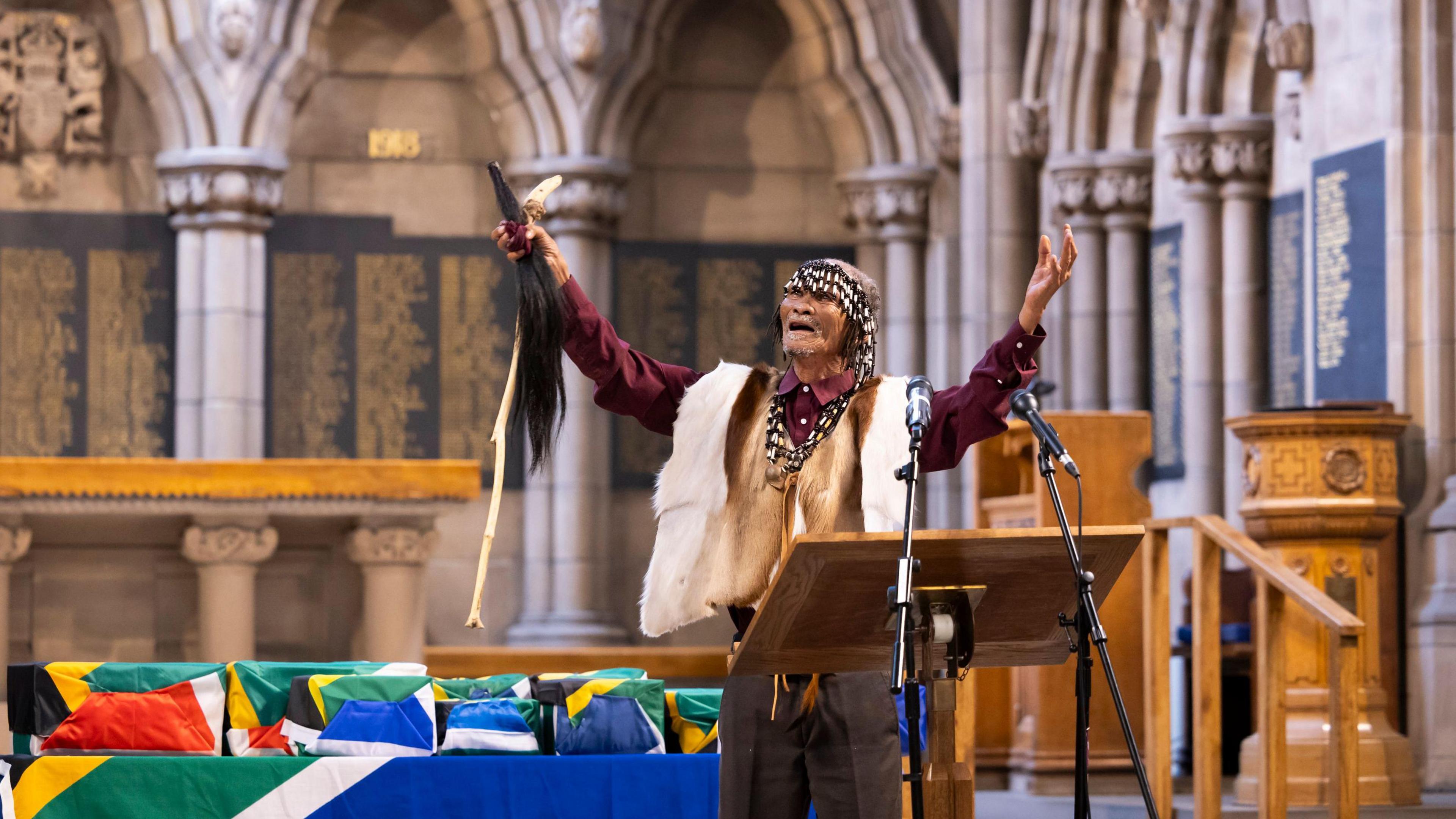
The human remains were unethically collected during the late 19th and early 20th centuries
Ancestral human remains, predominantly of Khoi, San and other indigenous origins, were unethically collected during the late 19th and early 20th centuries by institutions in southern Africa and around the world.
They were usually acquired without consent, often through illicit trade, unauthorised exhumation and grave robbing.
For over a century, they were held in institutions, including the Hunterian and Iziko Museums of South Africa, as a result of colonial and apartheid-era practices that treated them as objects of study and display.
The Hunterian has previously acknowledged its colonial legacy and stated it welcomes any repatriation claims.
Related topics
- Published21 March
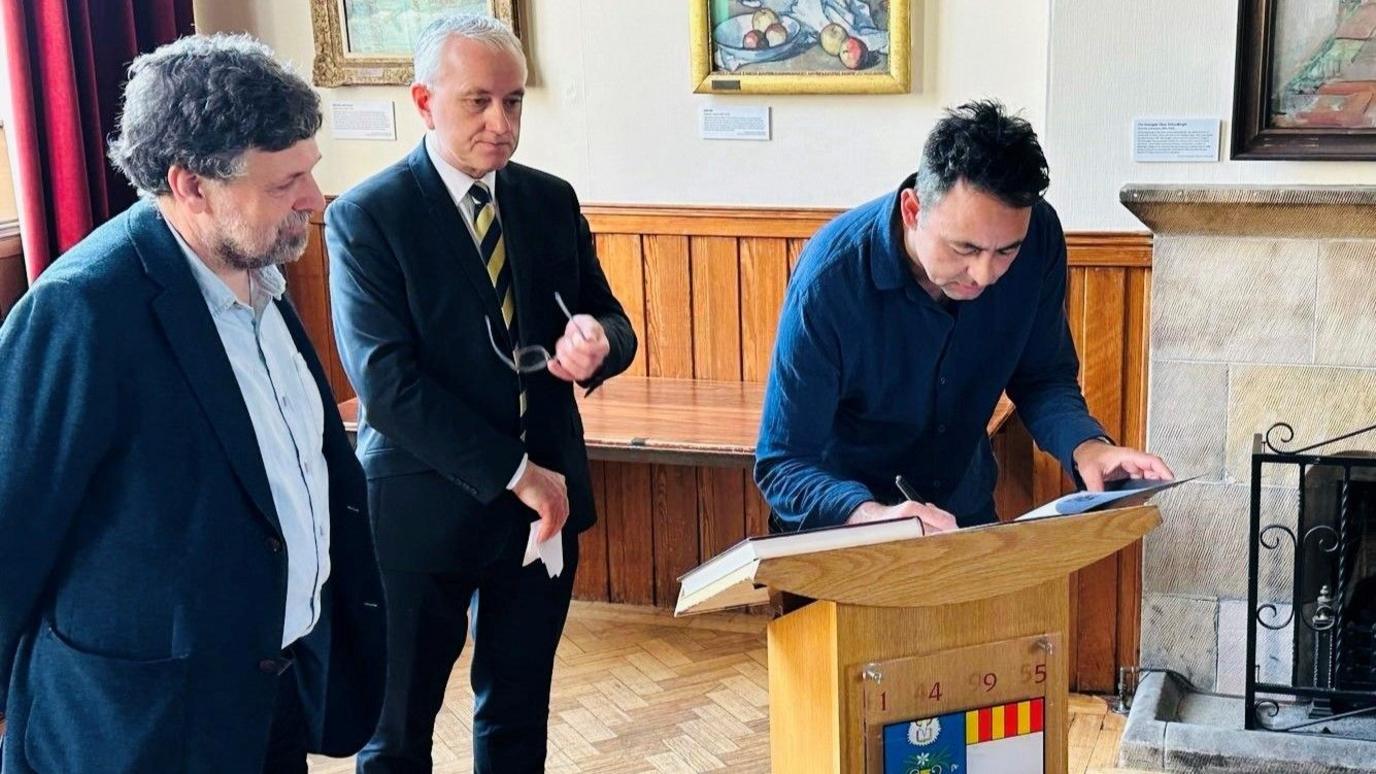
- Published12 October
